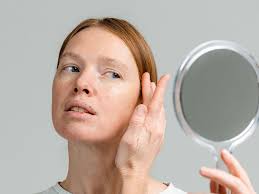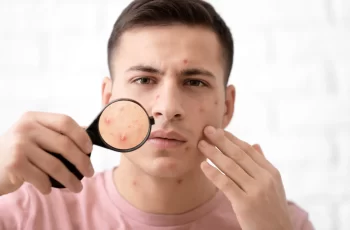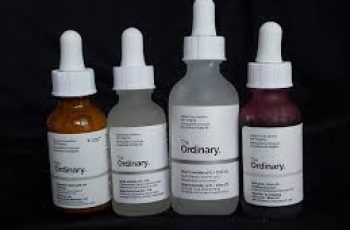
Do I Have Fine Lines or Real Wrinkles? A Dermatologist Explains the Difference
No, you’re not crazy: Fine lines on your face are not the same as mature wrinkles. However, they can be a sign of wrinkle formation, with causes ranging from preventable (exogenous), like sun damage, to non-preventable (endogenous, like, you guessed it, aging).
To learn more about fine lines, including how they differ from wrinkles and how to treat and prevent them, we turned to the experts: board-certified dermatologists Tess Mauricio, MD, FAAD, Marisa Garshick, MD, and Blair Murphy-Rose, MD, FAAD. Read on to find out what they had to say.
Fine Lines vs. Wrinkles: What’s the Difference
“Fine lines are flat, faint lines that are often caused by certain movements or factors like sun damage and dehydration, and appear at an earlier age. Fine lines can be a precursor to wrinkles,” says Mauricio. “Deeper, more noticeable wrinkles are caused by collagen breakdown and muscle movement, and become more pronounced over time.”
Wrinkles on the face
Many behaviors and lifestyle choices contribute to fine lines and eventually wrinkles. The good news? Most are preventable.
Repetitive facial expressions
“If we make certain facial expressions (often), the repetitive motions can lead to wrinkles,” Garshick says. “Just like a piece of paper is folded repeatedly and develops creases, the same happens with certain facial expressions.”
Sunlight
This is probably the most common cause of fine lines after actual aging, so it’s important to take preventative measures to protect your skin from the sun. All three experts note that sun exposure can cause DNA damage and increase the production of free radicals, which can lead to the breakdown of collagen.
Dehydration
As Derek Zoolander once said, “Moisture is the essence of moisture, and moisture is the essence of beauty.” So it’s no surprise that dehydrated skin and a lack of moisture can lead to fine lines and eventually wrinkles. “Dehydrated skin lacks the plumping effects of moisture in skin cells, which can make fine lines more noticeable,” notes Murphy-Ross.
Lack of sleep
If you’ve ever suffered from sleep deprivation, we don’t need to tell you it’s the worst thing ever. But in addition to fatigue and dizziness (and possibly irritability), your skin can suffer, too. “Lack of sleep contributes to the development of fine lines and wrinkles. When we sleep, our skin regenerates and repairs to keep it healthy,” says Garshick. “Without enough sleep, our skin may not repair as well, and fine lines and wrinkles may become more noticeable.”
Poor diet
Eat well, feel good, look good. “Poor nutrition can lead to reduced production of healthy collagen and elastin, and the formation of poor-quality collagen,” says Murphy-Ross. “A balanced diet with adequate protein, fat, vitamins, minerals, and antioxidants” can help prevent fine lines. And be sure to keep your Stanley Cup hydrated: “Over time, hydration supports healthy skin and helps prevent fine lines and wrinkles,” she says.
Smoking
If you still smoke, fine lines may be the least of your worries, but they’re certainly an unwanted side effect. “Smoking increases oxidative stress, leading to DNA damage and collagen breakdown, which can cause fine lines and wrinkles,” says Garshick. “In addition, smokers are at risk for smoker’s wrinkles, which form around the mouth due to the repetitive motion of smoking.”
How to Prevent and Treat Fine Lines
In addition to quitting smoking, getting enough sleep, and eating a healthy diet, there are other steps you can take to curb the formation of fine lines (and eventually wrinkles).
Skincare Ingredients
Of the countless ingredients found in skincare, some are particularly helpful in fighting fine lines.
Retinoids: “Vitamin A derivatives like retinol and prescription retinoids can increase collagen and elastin production, preventing and reducing the appearance of fine lines and wrinkles,” says Murphy-Rose. Garshick backs up this idea: “Retinoids can help treat fine lines and wrinkles because it boosts collagen production, which not only helps prevent the appearance of fine lines and wrinkles, but also treats them.”
Antioxidants: “Topical antioxidants like vitamin C, coquinone, resveratrol, green tea, and vitamin E can neutralize free radicals and prevent cell and DNA damage,” says Murphy-Rose. “This helps protect collagen and keep skin youthful.”
Peptides: “Peptides are small protein molecules that signal the body to produce more collagen, which can help improve the appearance of fine lines and wrinkles,” says Garshick. “One example is RescueMD DNA Repair Complex ($88), which, in addition to lapachol, moisturizing ingredients, and antioxidants, contains collagen peptides to help reduce the appearance of wrinkles and make skin look softer and smoother.”
Sunscreen
“Sun protection is essential for keeping skin healthy and youthful,” says Murphy-Rose. “UV radiation causes DNA damage, increases free radical production, and contributes to many signs of aging, including fine lines and wrinkles, by triggering collagen breakdown and elastin breakdown.”
When it comes to protection, sunscreen is an easy place to start. “Apply sunscreen daily to prevent UV damage and collagen breakdown,” says Mauricio. “A good choice is AlumierMD’s Sheer Hydration SPF 40. It’s a clear, hydrating, 100% physical broad-spectrum facial sunscreen.”
Hydration
I’m back with Zoolander (see above). Hydration is essential to keeping your body healthy from head to toe, including your skin. Humectants like hyaluronic acid and glycerin (found in most anti-wrinkle creams) help attract water, plump up the skin, and reduce the appearance of fine lines and wrinkles, Garshick tells us.And don’t forget to drink water.
Non-Invasive Treatments
“A great way to treat and prevent fine lines and wrinkles is with an in-office treatment that stimulates collagen and elastin production,” Murphy-Ross advises. “My favorite is Sofwave, which uses high-frequency, high-intensity ultrasound technology to heat the tissue just below the skin’s surface, which greatly stimulates collagen production, improves skin quality, prevents fine lines and wrinkles, and protects against signs of aging. This treatment has no downtime.”
She’s also a fan of laser treatments. “CO2 lasers dramatically improve wrinkles by resurfacing the skin and remodeling collagen. This process has a few weeks of downtime,” she says. “Non-ablative fractional resurfacing with Fraxel Dual is another great option, with five to seven days of downtime, which includes redness, mild swelling, and roughness of the skin.”
Gaschick’s recommendations include celebrity-favorite at-home devices. “Non-invasive treatments that can improve fine lines and wrinkles include red light therapy, such as the Solawave Radiant Renewal 4-in-1 Skincare Bar or CurrentBody Skin LED Light Therapy Mask, which can boost collagen production and reduce the appearance of fine lines and wrinkles.”
Mauricio recommends “considering microdermabrasion, chemical peels, microneedling, ultrasound, and radiofrequency to stimulate collagen production and improve skin texture,” as does Garshick, who mentions Morpheus8 radiofrequency microneedling as a possible treatment option.


